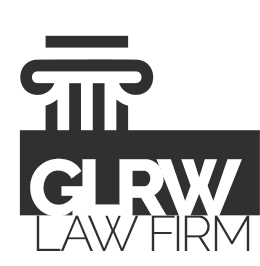
10 Jul Class Action Waivers in New Jersey Lease Agreements: Recent Ruling in Pace v. Hamilton Cove Apartments Upholds Landlords Rights
In an era where New Jersey courts have handed down multiple decisions limiting landlord’s rights, in the recent Pace v. Hamilton Cove Apartments case the New Jersey Supreme Court has recognized New Jersey landlords’ right to protect themselves against class action lawsuits. This pivotal case not only highlights the importance of well drafted lease agreements but also sets a significant precedent in limiting class action lawsuits.
What is a Class Action Lawsuit
A class action lawsuit is a legal proceeding in which a representative plaintiff or a group of plaintiffs (known as the class) bring a lawsuit on behalf of themselves and other individuals who have similar claims against the same defendant(s). This mechanism allows multiple individuals with similar grievances—such as consumers harmed by a product, tenants affected by a landlord’s actions, or employees subjected to unlawful practices—to consolidate their claims into a single case. Class actions are typically used when the number of potential plaintiffs is large, making individual lawsuits impractical. They enable efficient resolution of disputes and ensure fair treatment for all members of the class by pooling resources and sharing legal costs. If successful, the court’s judgment or settlement applies to all class members, providing relief or compensation as determined by the court.
Why Landlords Need to Worry About Class Action Law Suits
Class action lawsuit damages can be significant due to several factors. First, they often involve a large group of plaintiffs, which can amplify the financial impact on the defendant (in this case, the landlord). The cumulative effect of compensating numerous plaintiffs for damages, along with potential punitive damages and attorneys’ fees, can result in substantial financial liabilities. Additionally, class actions may attract media attention, potentially damaging the defendant’s reputation and business prospects. The complexity and duration of class action litigation also contribute to costs, as legal fees and administrative expenses can escalate throughout the process. Overall, the collective nature and potential scope of class action lawsuit damages underscore the importance for defendants to carefully manage legal risks and adhere to regulatory standards.
The Basics of Class Action Waivers in NJ Lease Agreements
Class action waivers in New Jersey lease agreements essentially prevent tenants from banding together to file a lawsuit against their landlord. Instead, tenants must pursue individual legal action, a stipulation that could significantly deter the pursuit of smaller claims. The legal landscape around these waivers has been somewhat murky, prompting both landlords and tenants to tread carefully. It’s a delicate balance of power, raising questions about fairness, accountability, and access to justice.
The enforceability of these waivers hinges on several factors. Notably, the New Jersey courts will scrutinize whether the agreement was entered into knowingly and voluntarily, and whether it stands up to the state’s strong consumer protection laws. Affordability of individual litigation is also a critical concern, potentially putting a significant financial burden on tenants and skewing the scales of justice.
Overview of Pace v. Hamilton Cove Apartments Case
At the heart of the Pace v. Hamilton Cove Apartments case is a dispute that challenged the foundational aspects of lease agreements in New Jersey. Plaintiffs William Pace and Robert Walters contested the operational integrity of security features within their leased property, a promise they claimed influenced their leasing decision. The crux of the lawsuit revolved around whether their agreement’s class action waiver was enforceable, setting the stage for a legal battle with implications far beyond the walls of Hamilton Cove Apartments.
This case ascended to the New Jersey Supreme Court, where Justice Pierre-Louis delivered a unanimous decision clarifying the enforceability of class action waivers. The court’s ruling illuminated not only the specific terms under which such waivers could stand but also reflected broader principles of justice and fairness in contractual agreements. Most importantly, the Court upheld the enforceability of a clause limiting the ability of tenants to bring class action lawsuits.
The decision rendered in the case emphasized that while class action waivers are not inherently contrary to New Jersey’s public policy, their enforcement would be contingent upon the waiver’s fairness and transparency. Such a ruling necessitates a closer examination of lease documents for landlords, highlighting the need for clarity and mutual understanding in these contracts.
Impacts of the Ruling on Landlords and Tenants
The ruling in Pace v. Hamilton Cove Apartments offers a double-edged sword, presenting both challenges and opportunities for landlords and tenants in New Jersey. For landlords, the case does protect New Jersey landlords right to limit class action lawsuits, however it underscores the importance of transparent, fair lease agreements that stand up to legal scrutiny. This landmark decision acts as a reminder that the terms of lease agreements, particularly class action waivers, must be tailored carefully, with the possibility of judicial review in mind.
For tenants, the ruling illuminates a path to asserting rights against unfair lease terms. It signals a judicial willingness to examine the substance of lease agreements beyond face value, considering the broader implications for access to justice and tenant protection.
Preventive Measures for Landlords to Consider
In light of the recent judicial developments, landlords are wise to consider preventive measures when formulating lease agreements. Foremost among these should be a comprehensive review of lease terms, with particular attention to class action waivers. Clarity, fairness, and transparency are paramount, with agreements crafted to avoid ambiguities that could lead to disputes.




Sorry, the comment form is closed at this time.